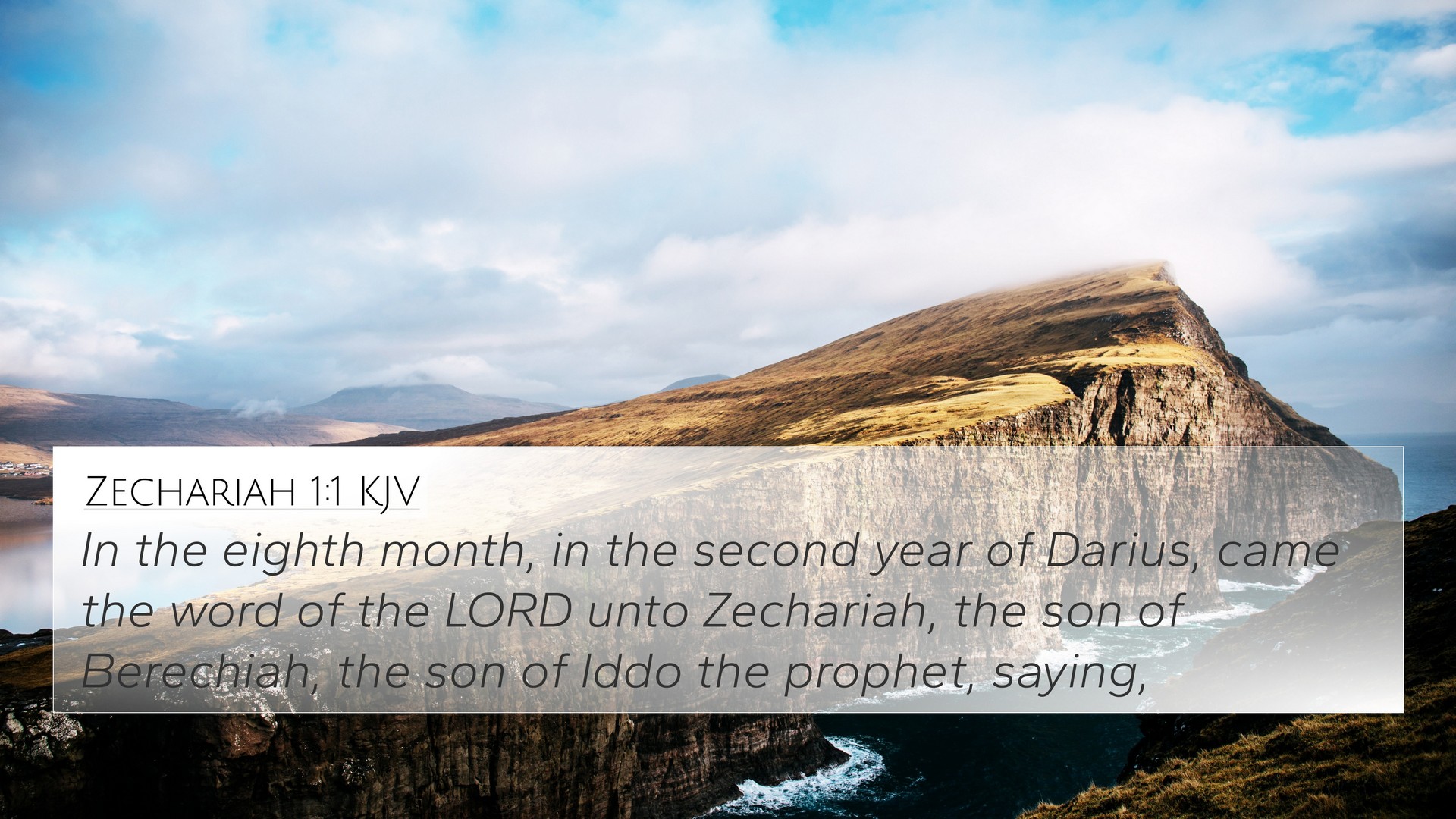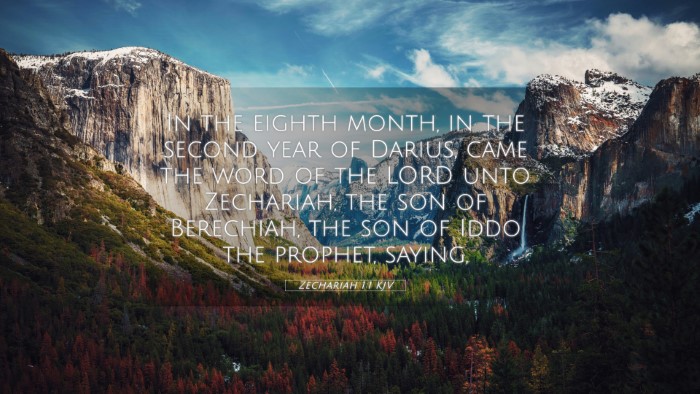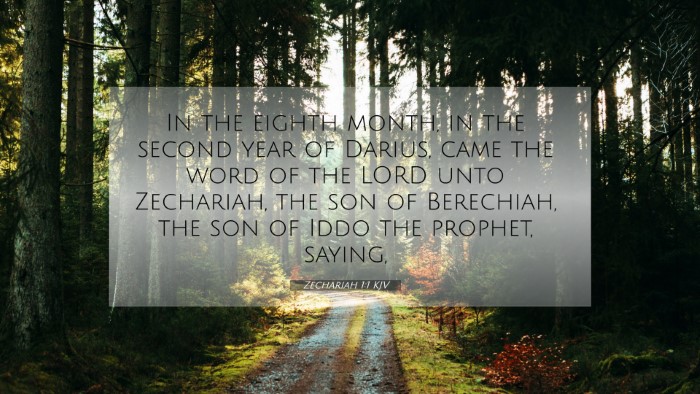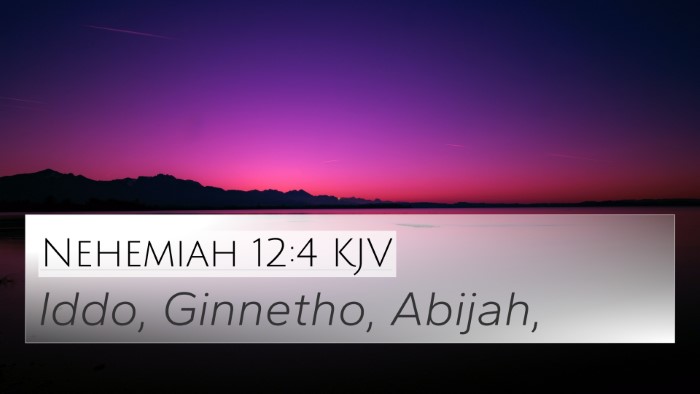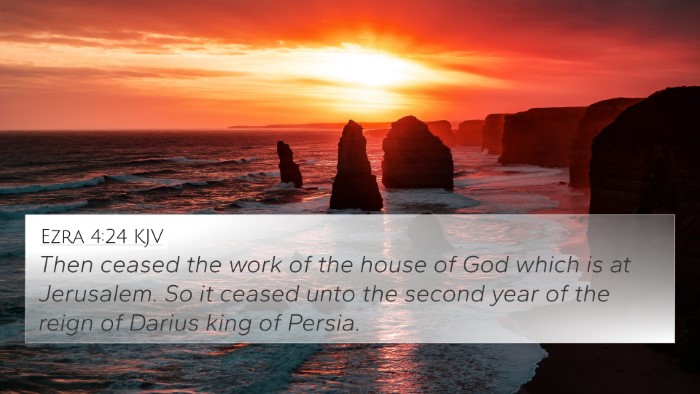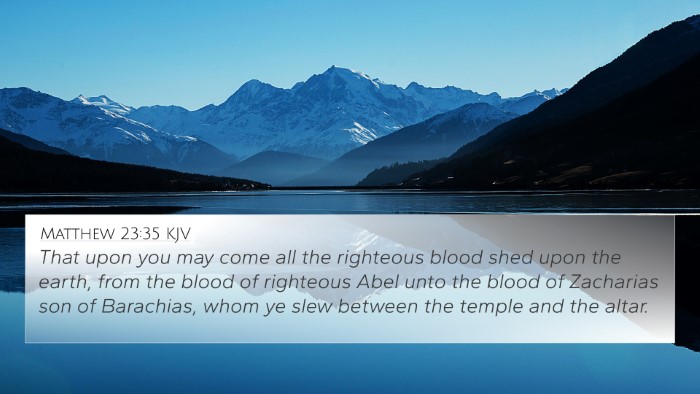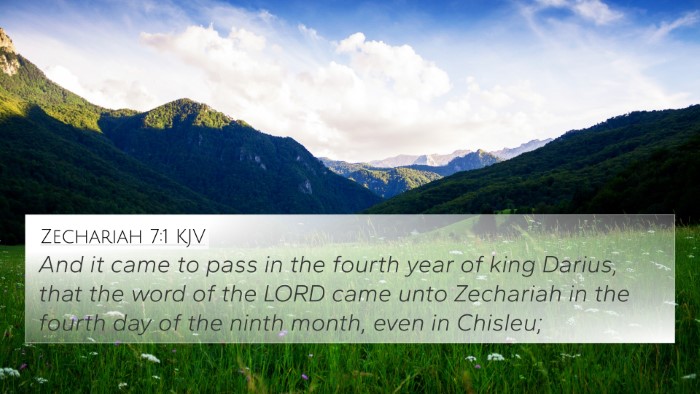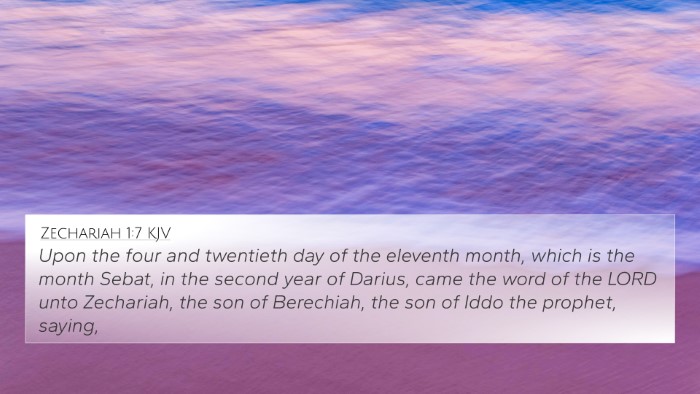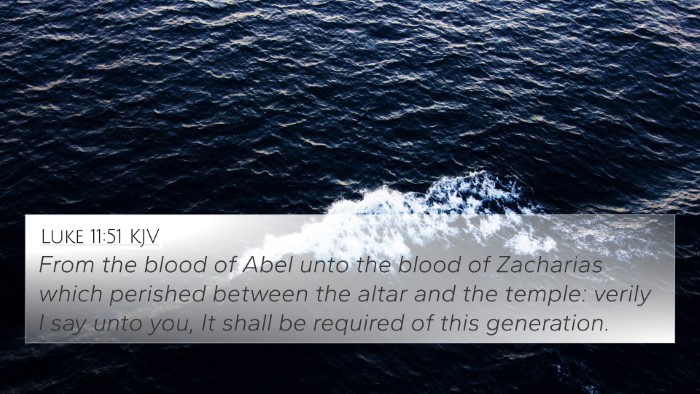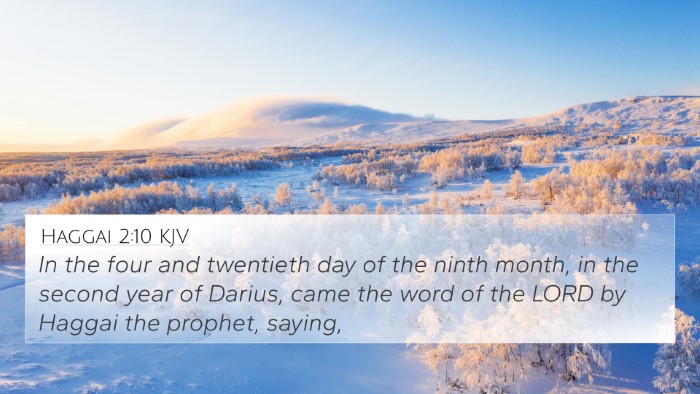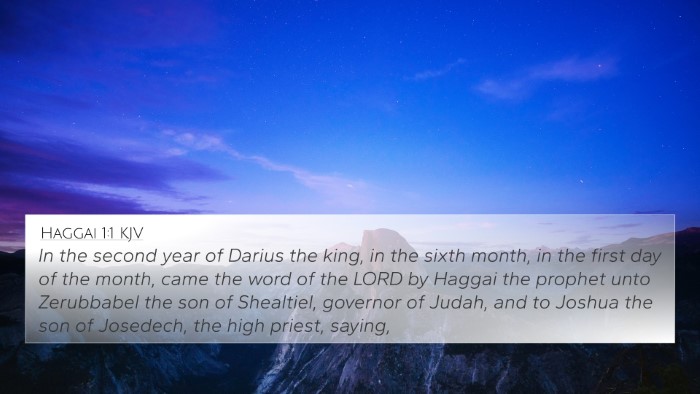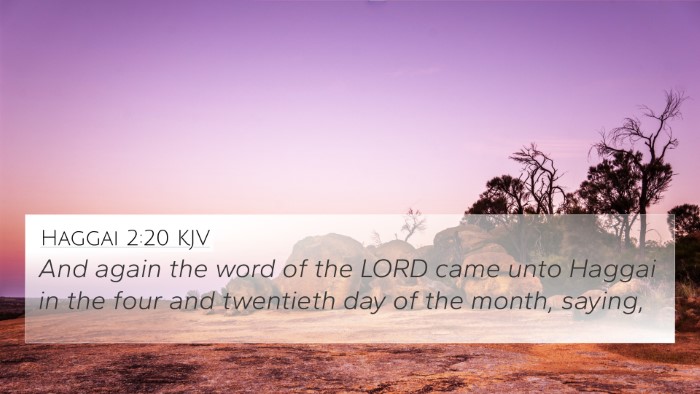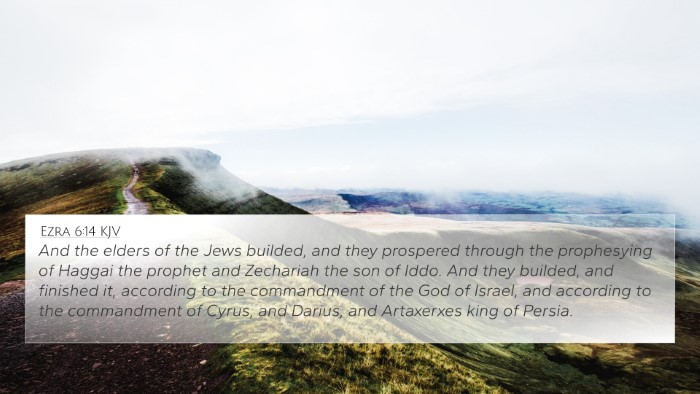Understanding Zechariah 1:1
The verse Zechariah 1:1 states: "In the eighth month, in the second year of Darius, came the word of the Lord unto Zechariah, the son of Berechiah, the son of Iddo the prophet, saying." This opening statement sets the stage for a series of prophecies and revelations delivered to Zechariah, signifying the initiation of God's message to His people following a period of silence.
Context and Background
Zechariah was one of the post-exilic prophets, speaking to the people of Israel who had returned from Babylonian captivity. His ministry began in the second year of Darius, emphasizing a time of restoration and rededication to God. The mention of specific dates serves to authenticate the prophetic message and align it with historical events, which is a key element in understanding biblical prophecies.
Key Themes
- Divine Communication: The phrase "came the word of the Lord" indicates a direct communication from God, showing His desire to engage with His people.
- Restoration: Zechariah’s messages focus on the restoration of Jerusalem and the temple, reflecting God's commitment to His covenant with Israel.
- Prophetic Lineage: Highlighting Zechariah's lineage (son of Berechiah, son of Iddo) underscores the historical continuity of God’s communication through prophets.
Bible Verse Cross-References
Zechariah 1:1 connects to several other Bible verses, illustrating thematic parallels and prophetic continuity. Below are some relevant cross-references:
- Haggai 1:1: "In the second year of Darius the king, in the sixth month, in the first day of the month, came the word of the Lord by Haggai the prophet," - another prophet active during the same period.
- Isaiah 40:1-2: "Comfort ye, comfort ye my people, saith your God," - speaks to God's call for comfort and restoration to His people.
- Jeremiah 29:10: "For thus saith the Lord, That after seventy years be accomplished at Babylon I will visit you, and perform my good word toward you," - refers to the promise of restoration after exile.
- Ezekiel 36:24-26: "For I will take you from among the heathen, and gather you out of all countries, and will bring you into your own land," - emphasizes God's plan for restoration and renewal.
- Malachi 3:1: "Behold, I will send my messenger, and he shall prepare the way before me," - linking Zechariah’s role as a messenger of restoration.
- Hebrews 1:1-2: "God, who at sundry times and in divers manners spake in time past unto the fathers by the prophets, hath in these last days spoken unto us by his Son," - contrasts the Old Testament prophetic messages with the New Testament revelation.
- Acts 3:19-21: "Repent ye therefore, and be converted, that your sins may be blotted out, when the times of refreshing shall come from the presence of the Lord," - ties the message of Zechariah to the New Testament call to repentance and restoration.
Thematic Connections Between Bible Verses
Understanding the connections between Zechariah 1:1 and other scriptures sheds light on overarching themes present in the biblical narrative, such as:
- Divine Judgment and Mercy: The balance between God's judgment on Israel and His merciful restoration can be seen throughout the prophetic literature.
- Covenant Faithfulness: God's unwavering commitment to His covenant people is a recurring theme, as seen in the works of prophets like Ezekiel and Isaiah.
- The Coming Messiah: Zechariah’s prophecies point towards the coming of the Messiah, illustrating the hope of Israel as encapsulated in later New Testament writings.
Comparative Bible Verse Analysis
By engaging in a comparative analysis of Zechariah 1:1's themes with other scripture, readers can deepen their understanding of the prophetic scriptures. This method of analysis aids in uncovering how God's plan has been progressively revealed through His prophets.
- Prophecy and Fulfillment: Comparing the prophetic words of Zechariah with the accounts of their fulfillment in the New Testament enhances our understanding of God's faithfulness.
- Historical Context: Analyzing the historical backdrop of Zechariah's message helps readers appreciate the significance of restoration after exile.
Tools for Bible Cross-Referencing
For those interested in exploring further, utilizing tools for Bible cross-referencing can uncover deeper insights into scriptural connections. Suggested methods include:
- Bible Concordance: A comprehensive concordance allows readers to find specific words and their occurrences throughout the Bible.
- Bible Cross-Reference Guide: Utilizing a guide enhances the understanding of thematic links across verses.
- Online Bible Resources: Many platforms now offer digital tools for easy cross-referencing and study.
How to Use Bible Cross-References
To effectively utilize Bible cross-references while studying Zechariah 1:1, consider these steps:
- Identify Key Themes: List out the major themes present in the verse and investigate related scriptures.
- Explore Parallel Texts: Look for verses that offer similar messages or themes to gain a broader understanding.
- Contextual Analysis: Always consider the larger context of each verse to grasp its intended meaning.
Conclusion
Zechariah 1:1 serves as a pivotal entry point into the prophetic messages intended to encourage and restore the people of Israel. Its connections to other scriptures, both Old and New Testament, highlight significant themes of divine communication, restoration, and faithfulness, enriching our understanding of God’s plan through the ages. Engaging in cross-referencing and thematic analysis can lead to a deeper appreciation of the Scriptures and their interconnectedness.
